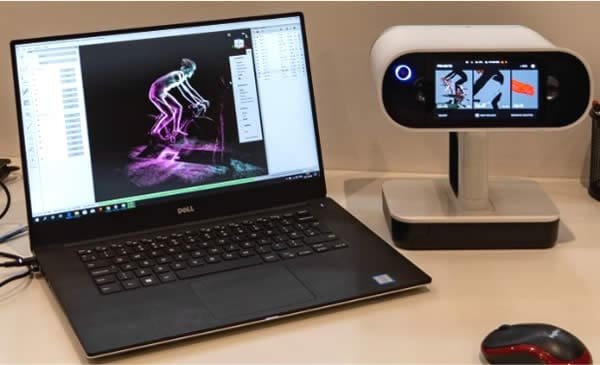In the search for personalised solutions across various sectors, 3D scanning technology stands out as a critical enabler. From medical prosthetics that enhance human capabilities to performance gear that pushes athletic limits, 3D scanning offers unparalleled precision and customisation. This blog delves into the transformative role of 3D scanning in creating tailored solutions, highlighting its impact not only in medical and sports sectors but also in industrial and commercial applications.
Transforming Prosthetics with 3D Scanning
3D scanning has revolutionised the field of prosthetics by enabling the creation of devices that are perfectly matched to the user’s body. By capturing detailed anatomical data, prosthetists can design and fabricate limbs that fit comfortably and function effectively, significantly improving the quality of life for amputees. This technology ensures that each prosthetic limb is a unique solution, precisely engineered to meet the individual’s specific needs.
Enhancing Athletic Performance with Custom Gear
In sports, marginal gains often make the difference between winning and losing. Here, 3D scanning comes into play by helping design equipment that fits the exact contours of an athlete’s body. Be it custom-fitted helmets, ergonomically designed rowing seats, or bespoke footwear, 3D scanning ensures athletes perform at their peak while minimising the risk of injury. The technology’s ability to analyse and optimise gear for individual body dynamics is changing how athletes train and compete.
Industrial and Commercial Applications
Beyond healthcare and sports, 3D scanning is pivotal in the industrial sector for creating custom tooling and assembly aids that streamline production processes. In commercial applications, it helps businesses deliver products tailored to customer specifications, from personalised jewellery to custom-fit furniture, enhancing customer satisfaction and loyalty. 3D scanning supports industries in developing unique solutions that combine functionality with a personal touch, thereby differentiating their offerings in the market.
Addressing Industry Challenges
Customisation demands a high degree of accuracy and efficiency, particularly when it comes to complex and varied individual requirements. Traditional methods often fall short in meeting these demands due to time constraints and the potential for human error. 3D scanning addresses these issues by providing rapid, accurate, and repeatable results that are crucial for high-quality custom manufacturing. This capability is especially vital in sectors where customisation is directly linked to the product’s effectiveness, such as in medical prosthetics and performance sports gear, ensuring that the end products not only meet but exceed user expectations.
Conclusion
3D scanning is more than just a technological innovation; it is a gateway to new possibilities in customisation across multiple sectors. As the technology continues to evolve and integrate with other digital manufacturing processes, its potential to provide tailored solutions that cater to the specific needs of individuals and industries will only grow, marking a new era in personalised manufacturing.
Discover how our 3D scanning services can help you achieve precision and customisation in your projects.
Contact us today to learn more and start leveraging the power of tailored 3D solutions.
